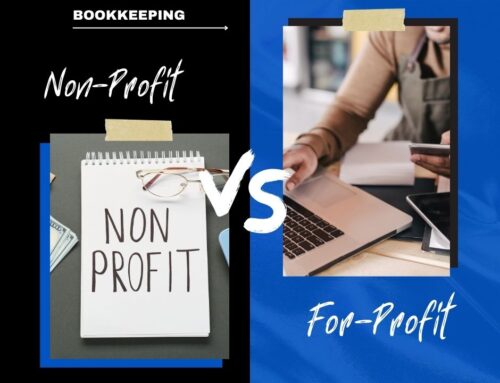Bookkeeping is the process of organizing and recording all financial transactions related to a business. A bookkeeper is responsible for these duties.
As a small business owner, you might be trying to handle all your record keeping on your own. But without proper financial training, this is a mistake.
Having a bookkeeper is crucial to the short-term and long-term success of all small businesses.
Without adequate bookkeeping, you won’t have an accurate depiction of where your business stands.
Accurate bookkeeping can help you discover fraud from one of your customers, employees, or vendors. Furthermore, you need to make sure that you have clean and organized financial reports if you get audited or need to borrow money from a lender.
For those of you who don’t currently have a bookkeeper, you need to find someone to fill that role as soon as possible.
Review this guide to learn exactly what a bookkeeper does for small businesses. This will give you a better understanding of why you need this position filled immediately.
Record Financial Transactions
The bookkeeper will record financial transactions daily.
It’s their job to determine what type of account the transaction falls under, and where it gets recorded. Your accounts will fall into one of these categories:
- Assets
- Liabilities
- Equity
- Revenue
- Expenses
- Other Income and Expenses
Once all these accounts are set up, transactions be labeled accordingly.
A professional bookkeeper will use a double entry accounting system, meaning that every transaction will be recorded twice, once as a debit, and once as a credit.
Prepare Financial Reports
Transactions are recorded on three essential financial reports for small business bookkeeping.
- Balance sheet
- Income statement
- Cash flow statement
A bookkeeper will prepare all these documents for you. Depending on the statement, these will be prepared monthly, quarterly, and annually.
Accounting software can make this job easier. But even if you’re using technology in your accounting department, it’s still your bookkeeper’s job to handle this responsibility.
Manage Payables and Receivables
If your business buys and sells goods or services on credit, you’ll be dealing with accounts payable and receivables, respectively.
Accounts receivable is money owed to your business by a customer. Accounts payable is money that you owe to vendors or suppliers.
Your bookkeeper will send an invoice to customers who you owe you money, either manually, or using innovative technology for invoicing. Then they will record those transactions accordingly, in the proper financial reports.
When a bill comes in from a supplier, your bookkeeper will process it. They will record the amount owed, and when the payment is due.
It’s the bookkeeper’s job to make sure that all those invoices are paid on time and recorded properly so the books are organized and up to date.
Payroll
For a small business, it’s common for the bookkeeper to process payroll, as opposed to having a separate department dedicated to this responsibility.
If you have employees that work for hourly wages, your bookkeeper will process the timecards and submit payroll information to your payroll service provider. This job also entails monitoring payment to employees who are paid on salary.
Your bookkeeper may also reimburse employees who submit expense reports.
Whether your small business processes payroll in-house, sends reports to a payroll processing company, pays employees with live checks, direct deposit, or a combination of these, your bookkeeper will play a large role in processing and managing this function of your business.
Manage and Reconcile Bank Accounts
Bookkeepers monitor transactions on the bank feed that’s linked to your accounting software. This technology makes it possible for transactions to be shown in real time.
Theoretically, your accounting software should be advanced enough to automatically segment transactions into the appropriate category. For example, the software should recognize a credit card transaction for a hotel as a travel expense.
However, sometimes there are errors with this software. The bookkeeper will keep an eye on these transactions on a regular basis to ensure that everything is being categorized properly.
Your bookkeeper will also manually add transactions that weren’t part of the bank feed. A cash payment is an example of something that would require manual entry.
Furthermore, your bookkeeper will reconcile your accounts as well.
This process helps make sure that every transaction in your bank account matches a transaction on your accounting software, credit card statements, and other documents. Bank reconciliation ensures that you’re not being overcharged, billed twice, and will help you quickly identify any fraudulent charges.
Having someone do this for you on a regular basis makes it easier to stay on top of things, as opposed to finding out about a mistake at the end of the year, which makes it much more difficult to identify and fix. Further, financial institutions expect errors to be reported timely, usually within 30-60 days following statement date.
Prepare for Taxes
To be clear, your bookkeeper does not file your taxes. A tax accountant will handle that.
However, your bookkeeper has a more in-depth knowledge of your books than anyone else in your business. That’s because they are the ones managing the books daily.
So, lots of small business owners have their bookkeeper be the point of contact for the accountant during tax season.
Your bookkeeper can give the tax preparer the proper documentation needed to file your taxes. They’ll also be available to answer any questions your accountant might have about those financial statements.
Conclusion
A small business bookkeeper wears many different hats. It’s a crucial role in the company.
If you don’t currently have a bookkeeper, you need to find a qualified candidate as soon as possible.
But if your small business is low on funds and doesn’t want to take on the costs associated with hiring a full-time employee, you can consider an outsourced bookkeeping service as an alternative option.
Here at Navitance, we have experience handling bookkeeping for small businesses.





